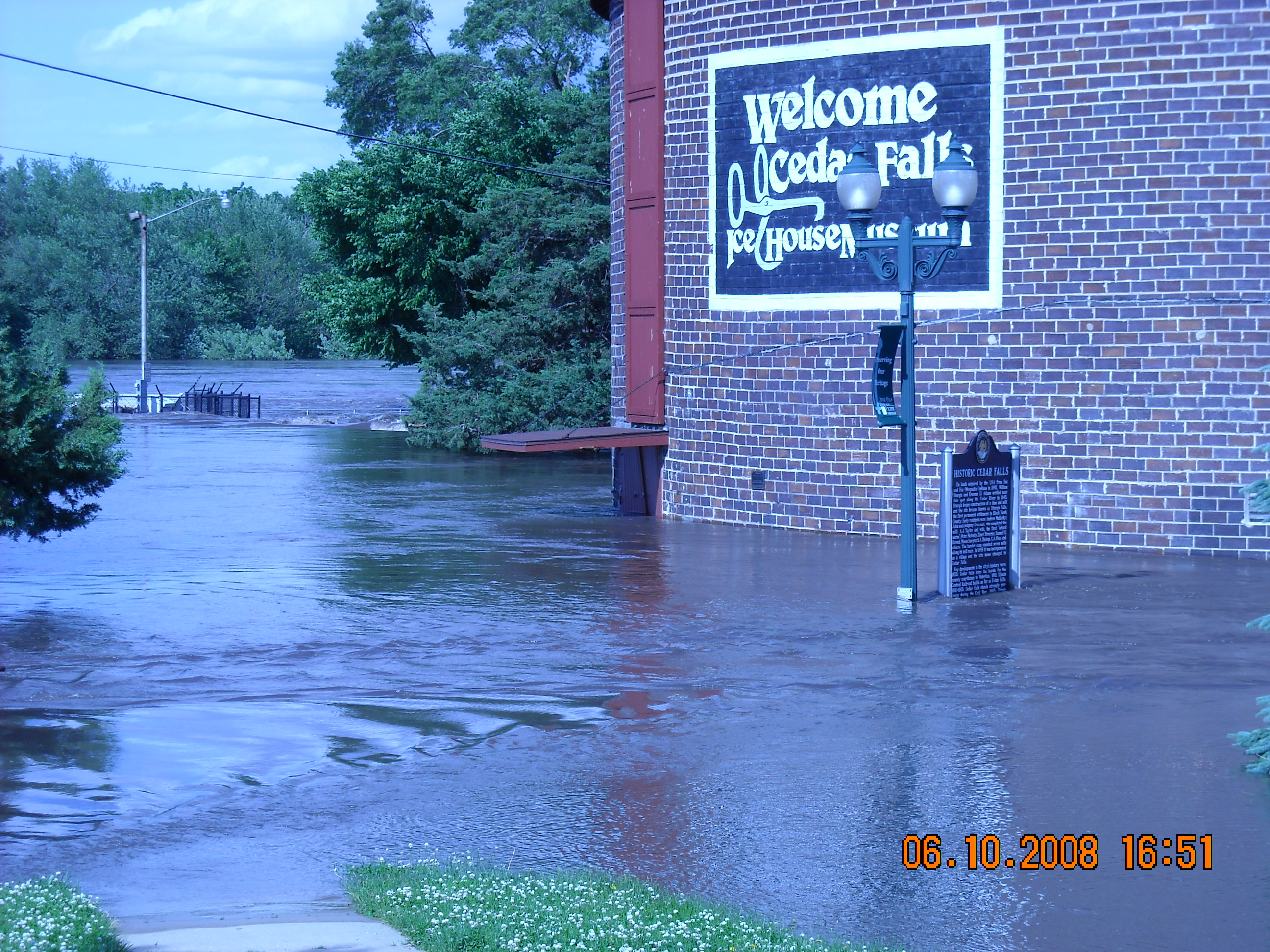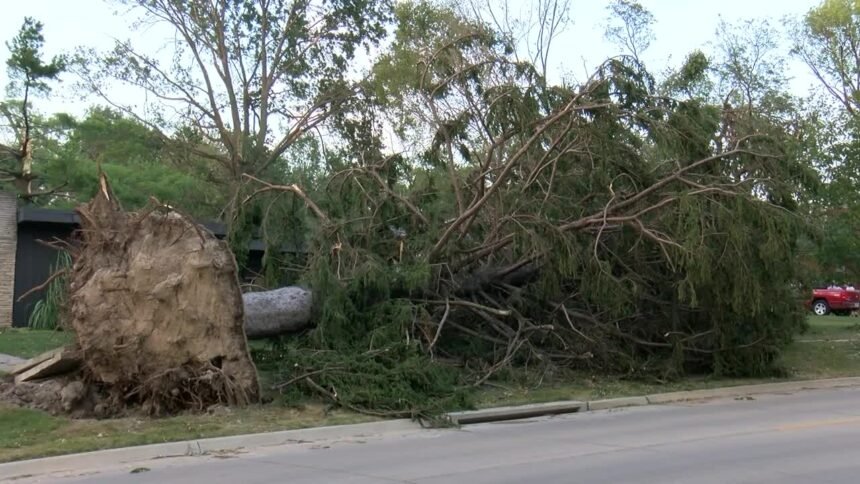Disaster Planning - Advance Preparation
 Disaster may come via wind, fire, flood, broken pipes, or even
locusts, but almost always includes water in some form. Basic
preparation demands an emergency plan, collections catalog backup off
site, and advance meetings with local first responders. Equip your vehicle's trunk for quick response by carrying the museum's
disaster response plan, list of contact phone numbers, and basic
equipment: head lamp, gloves, heavy boots, camera, face mask.
Disaster may come via wind, fire, flood, broken pipes, or even
locusts, but almost always includes water in some form. Basic
preparation demands an emergency plan, collections catalog backup off
site, and advance meetings with local first responders. Equip your vehicle's trunk for quick response by carrying the museum's
disaster response plan, list of contact phone numbers, and basic
equipment: head lamp, gloves, heavy boots, camera, face mask.
Photo courtesy of the Cedar Falls Historical Society. The Ice House Museum, Cedar River flood of 2008.
 Photo from KWWL-TV website. August 2020 Derecho storm damage.
Photo from KWWL-TV website. August 2020 Derecho storm damage.
A variety of resources are available from the Foundation for Advancement in Conservation:
The Foundation for Advancement in Conservation (FAIC) offers free emergency response assistance to cultural organizations affected by the flooding:
• The National Heritage Responders, a team of trained conservators and collections care professionals, are available to provide free advice on the phone via a 24-hour hotline at 202.661.8068
• The National Heritage Responders are also available to conduct free on-site assessments and provide guidance on salvage. Call the hotline (202.661.8068) to request assistance
Collecting institutions in the path of the floodwaters are encouraged to do all they can to prepare. Additional resources and information on disaster recovery and salvage can be found on the AIC and FAIC website at www.culturalheritage.org/resources/emergencies
The Field Guide to Emergency Response: A vital tool for cultural institutions .
This spiral bound handbook explains initial steps to take, essential
response functions, and conditions you are likely to encounter. Available for purchase here.
Midwest Early Recovery Fund - The mission of Center for Disaster Philanthropy’s Midwest Early Recovery Fund (Fund) is to provide communities affected by low-attention disasters valuable recovery resources through a timely, consistent, and replicable grantmaking process. For more information on the fund, please contact:
Nancy Beers , Director, Midwest Early Recovery Fund. (507) 990-5307 or email: [email protected]
D Plan Online Emergency Planning and Response Tool
Council of State Archivists Pocket Response Plan
Preservation Iowa
The Minnesota Historical Society has posted
emergency salvage procedures.
The
Iowa Conservation and Preservation Consortium has tip sheets available and provides the
"Iowa Museums, Archives, and Libraries Emergency Response Team" (IMALERT) which provides a hotline service (IMALERT Hotline 319-384-3673 or e-mail: [email protected]) to cultural institutions experiencing an emergency or disaster. The IMALERT Hotline can connect staff with the information and expertise needed to respond to, and recover from any level of incident from a leaking pipe to a major flood. IMALERT will coordinate with first responders, state and local agencies, and vendors to provide disaster assistance to affected institutions and their collections. Through the team’s vast experience in conservation, preservation and emergency response and recovery, help is available to:
- assess damage to collection materials
- make recommendations for recovery
- assist with decision making on drying out buildings
- demonstrate salvage techniques and/or help organize the initial salvage operation
IMALERT is an initiative of the Iowa Conservation and Preservation Consortium
American Institute for Conservation of Historic and Artistic Works has a 24 hours hotline at 202.661.8068 for free advice by phone.
Regional Alliance for Preservation